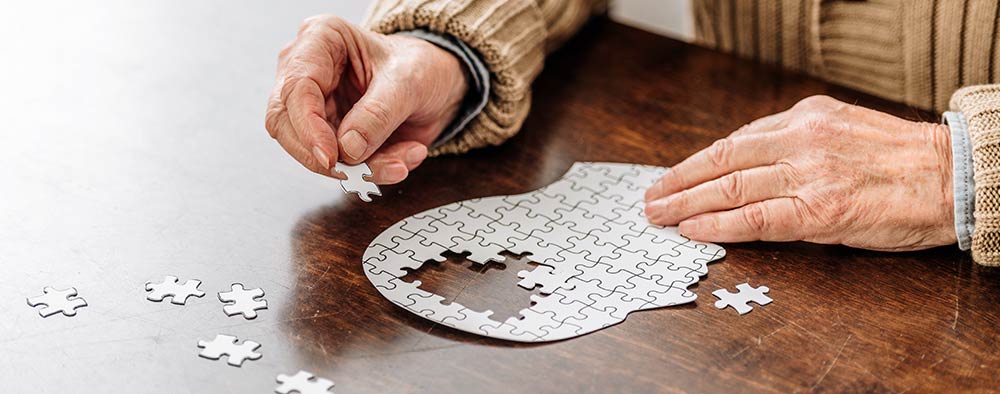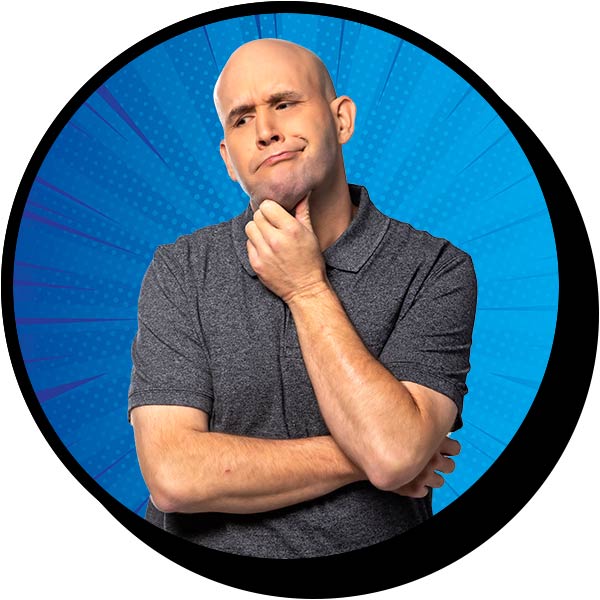by Brent Hearn •
Can puzzles and games improve cognitive abilities in aging brains?
It depends.
If you find that rather tepid answer discouraging, it’s completely understandable. After all, we’d all like to think we can beat the odds when it comes to staying sharp as we get older.
Before you start wringing your hands over an introduction that’s not overwhelmingly positive, know this: there’s still plenty to be optimistic about. But don’t take our word for it; keep reading and find out! (I suppose you’d still be taking our word for it; you’d just be doing so further down the page. But I digress.)
Lofty Claims
You may have seen ads for “brain-training” apps over the years and found your curiosity piqued. Advertising for one such app, Lumosity, was ubiquitous for a time; we were bombarded by assurances that we could delay cognitive decline and protect against Alzheimer’s disease—and other age-related illnesses besides—by playing its suite of brain-building games.
Sound too good to be true? Well, the Federal Trade Commission thought so too, and in 2016 it slapped Lumos Labs, the creator of Lumosity, with a lawsuit that resulted in a $50 million judgment. (The company settled for $2 million.) The FTC argued that the Lumos claims were false or unsubstantiated.
Does that mean games—and/or puzzles or other brain-training strategies—are bogus?
No, it doesn’t. It means the company was promising more than it could prove (There was more to it; Lumos Labs had failed to disclose that some of the testimonials for Lumosity had been solicited through contests.)
So…do games, and puzzles, and whatnot, work or not?!
As is often the case, the results of studies vary. Here are just a couple of the numerous challenges faced by researchers:
- It’s difficult to determine whether increased scores on tests throughout a study signify an actual increase in the abilities being measured—memory, spatial reasoning, logic, etc.—or if it just means they’re becoming more familiar with the test. It’s a variation of the old education argument: Are you good at insert-subject-here, or are you just good at taking tests?
- It’s also difficult to show whether any measured increase in cognitive skill on such tests transfers to real-world applications. Great, you upped your memory score! But will it help you remember the name of the acquaintance who’s approaching you in the frozen foods section? (Oh, the dreaded, “How’s it going…guy?” exchange!)
This meta-analysis of study published in 2021 wasn’t very optimistic about brain gaming’s effects on global cognitive function or specific cognitive domains (memory, executive function, visuospatial skills, and language) when compared to other interventions. That said, the authors also couldn’t confidently refute claims that brain gaming has merit either. (See? Even studies of other studies are inconclusive.)
On a more positive note, a 2022 study by Columbia University and Duke University compared two groups of people with mild cognitive decline—one tested with web-based crossword puzzles and the other with cognitive video games. The puzzlers showed less brain shrinkage and better daily functioning than the gamers.
The Takeaway
The jury may still be out on how effective games and puzzles are at keeping the aging brain healthy. That said, there are other proven ways to fight off cognitive decline, including exercise, socializing, nutrition, learning a new skill, and good sleep habits. (More of the positive!)
So go ahead and play that word game or do that crossword. But also consider putting your pencil down occasionally to go take a walk…with a friend…before eating a healthy meal…on your way to your beginner’s French class…all followed by a good night’s rest.
Let’s let the scientists suss out what works best. What’s the harm in attacking cognitive decline on every front?
SOURCES:
The Topeka Capital-Journal: Mind tricks: Do puzzles, brain games really keep older minds sharp?
National Institute on Aging: Video games show potential in improving key aspects of memory in older adults
Columbia University Department of Psychiatry: Crossword Puzzles Beat Computer Video Games in Slowing Memory Loss
The Washington Post: Can a daily crossword puzzle slow cognitive decline?
Federal Trade Commission: Lumosity to Pay $2 Million to Settle FTC Deceptive Advertising Charges for Its “Brain Training” Program
Los Angeles Times: If you weren’t smart enough to know Lumosity was making bogus claims, the FTC has your back









 ▶︎
▶︎  Why is the Discount Challenge prize amount $15,024? Because that is the average “per-occurrence” fine for Medicare inducements. That’s not $15,024 per patient, that’s not per provider, that’s PER VISIT. Stinks, doesn’t it? To us, the prize amount is worth the investment if we can help our profession better understand proper discounting.
Why is the Discount Challenge prize amount $15,024? Because that is the average “per-occurrence” fine for Medicare inducements. That’s not $15,024 per patient, that’s not per provider, that’s PER VISIT. Stinks, doesn’t it? To us, the prize amount is worth the investment if we can help our profession better understand proper discounting.